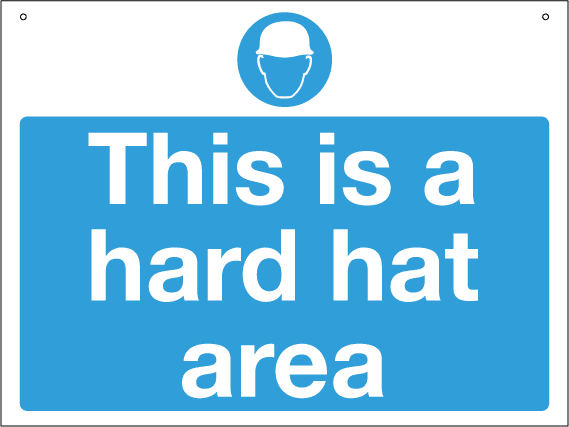 Welcome to my SAT prep tutoring blog! Be sure to join my email list for subscriber-only updates and exclusive content you can’t get anywhere else!
Welcome to my SAT prep tutoring blog! Be sure to join my email list for subscriber-only updates and exclusive content you can’t get anywhere else!
Ok, be warned. This might become a bit of a rant about a certain type of SAT prep student that I see a lot. Do you fit the description?
Here’s an experience I’ve been having a lot with new SAT tutoring students lately: everyone is too arrogant.
Whether the student is a good, bad… they all seem to think too much of their own skills.
Why’s this a problem?
Well, first of all, it’s kind of annoying. Just a tiny bit disrespectful-feeling. Like, this type of student wants to tell me how the SAT works from the very first lesson.
Students who ask questions at the first lesson are humble. They are the ones that always go far in their SAT prep study.
Humility is the first guidepost on the road to learning.
To learn, first you have to admit that you don’t know yet
Learning requires a vacuum, a little space in your mind that can be filled with new information. You have to be willing and able to receive it.
If your vacuum is taken up with arrogance and over-confidence, there is no space for new knowledge to move in.
Get Exclusive SAT Prep Tips!
I want to send you more tips to help your SAT score, but I need your email address to stay in touch. Enter your email below so I can send you my reports on the SAT and other subscriber-only bonuses.
The “beginner’s mind” is a concept from Zen Buddhism. It refers to the concept of always remaining eager to learn, willing to give up old “wrong ideas” at a moment’s notice.
Keeping a “beginner’s mind” is useful in all contests of skill. The greatest experts are, paradoxically, the ones who have maintained the greatest belief in their own insignificance.

The greatest SAT-takers acknowledge that the test is BIGGER than they are.
That the SAT has been around LONGER than they have.
That the STUDENT has to bend to the TEST. Not the other way around.
The greatest SAT students are often also the most humble of souls.
Of course, I brag all the time about my expertise on the SAT. Hypocrisy? Perhaps – but, this is my profession. I HAVE to tell you how great I am at the SAT – otherwise no one pays attention to me and I don’t eat. So check out my books.
Some SAT questions will be too hard for you right now. Being humble means learning to admit this without getting your feelings hurt.
I can tell an arrogant student by a combination of the following behaviors:
Common SAT Vocab Arrogance
- Trying to see word roots where there are none.
- Seeing word roots, but assuming too much about what they mean.
- Assuming words that sound the same must have the same meanings.
- Ignoring vocab words that they don’t know… acting like the word isn’t even there.
- “I know I’ve seen/heard that word before…. and I don’t know what it means but it doesn’t sound right to me.”
Enroll in my Conquer SAT Vocabulary video course to overcome these common mistakes!
Common SAT Math Arrogance
- When students give up after a couple steps. They’re focused on themselves, expecting it to be easier. It’s supposed to be hard.
- When students throw their pencil down, roll their eyes, or whine. Admit it’s difficult and frustrating, then pick up the pencil and carry on.
- When students think the box of geometry formulas at the front of the section will save them from needing to memorize (these students never improve)
- When students do work in their head instead of on paper (GRR I HATE THIS. WHAT ARE YOU TRYING TO PROVE??)
Common SAT Writing Arrogance
- Using your own speech and writing style as the yardstick of good grammar.
- When things deviate from how “I would say it” then assume the must be wrong.
- Declare that grammar is just a stupid set of made-up rules and act like that’s an excuse not to master it.
- Assuming you don’t need to practice your essay “because I’m really good at writing.” Believe me, no one is ever good enough not to need practice.
General common arrogance about the SAT
- Not putting in the practice time outside of lessons
- Not taking notes.
- Not eliminating answer choices before answering.
- Not writing on the test booklet. (It’s there to be written in!)
All of the above-listed behaviors are symptoms of arrogance.
Banish arrogance and embrace humility if you want to improve on the SAT.
Keep your beginner’s mind regarding math, writing, and vocabulary.
Oh, and don’t forget to actually study.
Further Reading:
How to Get a Perfect Score on the SAT
What Exactly is on the SAT Writing Section?
A Brief History of the SAT Test
Is the SAT Test Hard?
Additional Resources:
Visit my Online SAT Prep Bookstore (e-Books)
Conquer SAT Vocabulary (Video Course)
Griffin SAT: A Complete Course on Acing the SAT (Video Course)
P.S. You should really join my SAT mailing list so I can send you subscriber-only content and exclusive tips to raise your score!


















You’re kind of like my SAT hero. Before I started reading your blog posts, I had been using many SAT textbooks but then I actually never got what I wanted from those books. Most of the tips and strategies in the books were almost always surface stuff I could have figured out on my own (excuse my arrogance). Then I met your blog (through google of course) and it told me all I needed to know. The essay writing strategies (like preparing your examples before the exam) and how to escape those pesky math mistakes were particularly superb. I got 2200. 760 in both math and writing and a 680 in critical reading (I don’t exactly like long boring texts). I just want to say a big thank you because I believe your blog made all the difference.
Haha you’re kind of like my blog-reader hero! This comment made my morning amazing! Especially since it’s Summer Break so, I know you didn’t have to think about my little SAT prep blog. It’s even more appreciated.
I will strive to always and only write posts that actually bring some DEPTH to the realm of SAT prep. I agree – too many people out there saying the exact same things over and over!
Thanks for reading :) Tell your friends about your favorite posts, if they’re still not done with the SAT!